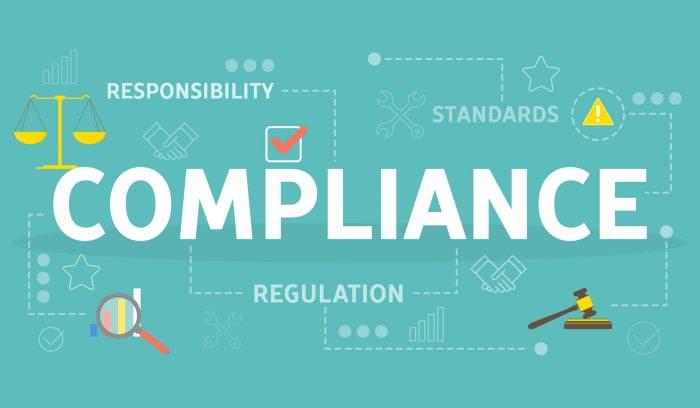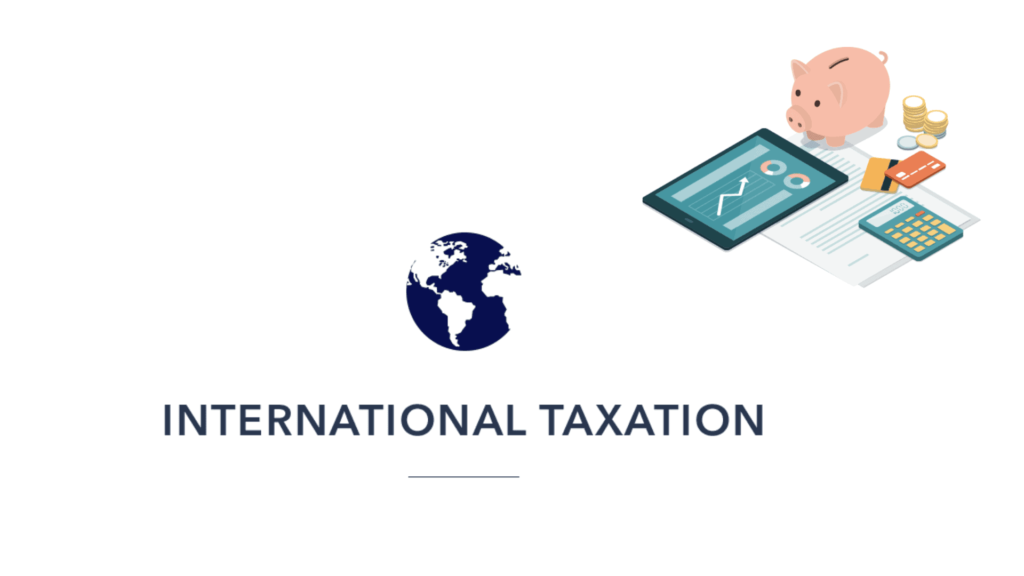NON-ACADEMIC ICAI UPDATE (NOT RELEVANT FOR EXAMS BUT FOR GENERAL AWARENESS)
Hello Everyone,
Please find text of the Highlights of Tax Proposals – Union Budget 2021-22 notification below –
Highlights of Tax Proposals – Union Budget 2021-22
SIGNIFICANT DIRECT TAX PROPOSALS IN THE FINANCE BILL, 2021
The Finance Bill, 2021 has introduced a spate of proposals on business taxation and personal taxation as well as proposals relating to assessment and dispute resolution. The significant proposals on direct taxes are briefed hereunder –

Expansion of scope of deduction under section 80-IBA and extension of outer time limit for obtaining approval
Under section 80-IBA, 100% deduction of the profits and gains derived from business of developing and building affordable housing project is allowable, subject to fulfilment of certain conditions specified therein. One of the conditions is that the project should be approved by the competent authority after the 1.6.2016 but on or before 31.3.2021.
Taking into consideration the interest of migrant labourers, this deduction proposed to be extended to rental housing project notified by the Central Government (CG), subject to such conditions as specified in the said notification. Moreover, the outer time limit for getting the approval is also proposed to be extended by one year i.e., upto 31.3.2022. The said time limit would be applicable for affordable rental housing project as well.
Safe harbour limit increased from 10% to 20% under section 43CA and 56(2)(x) for specified transfers to boost real estate sector
Section 43CA provides that where the value adopted or assessed or assessable by the authority for the purpose of payment of stamp duty does not exceed 110% of the consideration received or accruing as a result of the transfer, the consideration so received or accruing as a result of the transfer shall, for the purposes of computing profits and gains from transfer of such asset, be deemed to be the full value of the consideration. Union Budget 2021-22
Likewise, section 56(2)(x), provides that where the assessee receives any immovable property for a consideration and the stamp duty value of such property exceeds 10% of the consideration or Rs.50,000, whichever is higher, the stamp duty value of such property as exceeds such consideration shall be charged to tax under the head ?Income from other sources”.
In order to uplift the real-estate sector and to help the real-estate developers liquidate their unsold inventory at a lower rate to home buyers, the safe harbour threshold of 10% under section 43CA is proposed to be increased to 20%, if –
- the transfer of residential unit takes place during the period from 12.11.2020 to 30.06.2021
- the transfer is by way of first time allotment of the residential unit to any person
- the consideration received or accruing as a result of such transfer does not exceed Rs. 2 crore. Correspondingly, the safe harbour limit under section 56(2)(x) is also proposed to be increased from 10% to 20% in cases where transferor is subject to tax under section 43CA and conditions specified above are satisfied.
Increase in threshold limit for tax audit in case of businesses receiving and making payments digitally or through account payee cheque/bank draft
The threshold limit to get the books of accounts audited under section 44AB, for a person carrying on business is proposed to be increased from Rs. 5 crores to Rs. 10 crores rupees subject to the following existing conditions –
- aggregate of all receipts in cash during the previous year does not exceed 5% of such receipt; and
- aggregate of all payments in cash during the previous year does not exceed 5% of such payment.
LLP not eligible to opt for presumptive income provisions under section 44ADA
Section 44ADA proposed to be amended to clarify that the presumptive taxation for professionals would apply to an assessee, being an individual, HUF or partnership firm, not being an LLP, being a resident in India engaged in a profession referred to in 44AA(1) and whose total gross receipts do not exceed Rs. 50 lakhs in a previous year. Consequently, LLPs would not be eligible to opt for presumptive income provisions under section 44ADA.
Goodwill not eligible for depreciation
In order to provide certainty, section 32 proposed to be amended to clarify that goodwill of a business or profession would not be considered as a depreciable asset and no depreciation would be allowed on goodwill. Highlights of Tax Proposals – Union Budget 2021-22
However, in case depreciation is already being claimed by the assessee in relation to goodwill purchased by an assessee, the depreciation so claimed by the assesse shall be reduced from the amount of the purchase price of the goodwill and considered as cost of acquisition for the purpose of computation of capital gains under section 48.
Extension of date of incorporation for eligible start for deduction under section 80-IAC and for investment to avail capital gains exemption under section 54GB
The eligible start-up is required to be incorporated between 1.4.2016 and 31.3.2021 in order to be eligible for deduction under section 80-IAC.
Individuals or HUFs can claim exemption under section 54GB from capital gain arising from the transfer of a long-term capital asset, being a residential property (a house or a plot of land), if net consideration from transfer is utilised for subscription in the equity shares of an eligible start-up, before the due date of furnishing of return of income under section 139(1). This benefit is available only when the residential property is transferred on or before 31.3.2021.
To order to give a fillip to eligible start-ups, the outer time limit for incorporation is proposed to be extended from 31.3.2021 to 31.3.2022, for the purpose of deduction under section 80-IAC. Moreover, the outer date of transfer of residential property for availing capital gains exemption is also proposed to be extended from 31.3.2021 to 31.3.2022.

Advance tax liability on dividend income
So far, interest under section 234C is not attracted where the shortfall in the advance tax instalment or the failure to pay the same on time is on account of income by way of capital gains, winnings from lotteries, casual incomes etc. and the assessee has paid full tax in subsequent advance tax instalments.
This provision is to protect the taxpayers from payment of interest under section 234C in cases where accurate determination of advance tax liability is not possible due to the intrinsic nature of the income. Since dividend income also falls in the said category of income, the same is proposed to be included in the above list, so that the advance tax liability arises only in the installment(s) which fall subsequent to receipt of dividend. However, such dividend does not include deemed dividend under section 2(22)(e).
Extension of outer time limit for sanction of loan for availing deduction under section 80EEA Deduction of up to Rs. 1,50,000 is allowed under section 80EEA to an individual, being a first time home buyer, in respect of interest on loan taken for a residential house property from any financial institution, subject to the condition inter alia that the loan has been sanctioned during the period 1.4.2019 and 31.03.2021. To further facilitate first time home buyers, the outer time limit for sanction of loan is proposed to be extended from 31.3.2021 to 31.3.2022.
Exemption from filing return of income-tax to specified senior citizens
New section 194P is proposed to be inserted to require specified banks to compute total income of specified senior citizens and deduct tax at source thereon, after giving effect to deductions under Chapter VI-A and rebate, if any, allowable u/s 87A. The provisions u/s 139 requiring filing return of income would not be applicable to such specified senior citizens. Specified senior citizens have been defined to mean an individual, resident in India,
- who is of the age of 75 or more during the previous year;
- has pension income and no other income. However, in addition to such pension income he may also have interest income from the same bank (specified bank as notified by the Government) in which he is receiving his pension income;
- has furnished a declaration to the specified bank. The declaration shall be containing such particulars, in such form and verified in such manner, as may be prescribed.
Taxability of proceeds of high premium Unit Linked Insurance Plan (ULIP)
A cap of ` 2.5 lakh has been fixed on the annual premium of ULIP in respect of policies taken on or after 01.02.2021. Accordingly, if the annual premium exceeds Rs.2.50 lakhs in respect of such policies, exemption u/s 10(10D) in respect of maturity proceeds would not be available. Further, such ULIPs would be treated as a capital asset and where any amount is received by the unit holder from ULIP, profits and gains therefrom would be chargeable to tax as capital gains u/s 112A. However, the amount received on death shall continue to remain exempt without any limit on the annual premium.
Taxability of Interest on Employees contribution to provident funds exceeding specified threshold
Tax exemption for the interest income earned on the employees? contribution to various provident funds proposed to be restricted to annual contribution by an employee to the extent of ` 2.5 lakh. This restriction shall be applicable only for the contribution made on or after 01.04.2021.

Higher rate of TDS/TCS on persons not filing return of income
New section 206AB is proposed to be inserted to deduct tax at higher rate of the following, on any sum or income or amount paid, or payable or credited, by a person to a specified person –
- twice the rate specified in the relevant provision of the Act; or
- twice the rate or rates in force; or
- the rate of 5%
However, this provision would not be applicable where the tax is required to be deducted under sections 192, 192A, 194B, 194BB, 194LBC or 194N of the Income-tax Act, 1961.
Similarly, it is proposed to insert new section 206CCA to collect tax at source at higher of the following on any sum or amount received by a person from a specified person
- twice the rate specified in the relevant provision of the Act; or
- the rate of five percent
If the provision of section 206AA or section 206CC regarding non furnishing of PAN is also applicable to such specified person, the tax shall be deducted at higher of the two rates provided in section 206AA and section 206AB or section 206CC and section 206CCA.
Specified person means a person who has not filed the returns of income for both of the two assessment years relevant to the two previous years immediately prior to the previous year in which tax is required to be deducted or collected, for which the time limit of filing return of income under section 139(1) has expired; and the aggregate of tax deducted at source and tax collected at source in his case is Rs. 50,000 or more in each of these two previous years. However, a non- resident who does not have a permanent establishment in India will not be a specified person. Highlights of Tax Proposals – Union Budget 2021-22
TDS on purchase of goods exceeding a specified threshold
Tax is to be deducted under new section 194Q by a buyer responsible for paying to any resident for purchase of goods of the value or aggregate of such value in excess of Rs.50 lakhs in any previous year. The TDS provisions would be applicable only to a buyer whose turnover is more than Rs.10 crore during the financial year immediately preceding such financial year in which purchase is carried out. Tax is to be deducted at source @0.1% of such sum exceeding Rs.50 lakhs, at the time of crediting the amount or at the time of payment of such amount, whichever is earlier. In case of non-furnishing of PAN, tax @5% is required to be deducted at source.
Time limit for filing belated return and to revise original return reduced
The belated return u/s 139(4) and revised return u/s 139(5) can be filed on or before the end of the assessment year or before the completion of the assessment, whichever is earlier. In the faceless and jurisdiction-less assessment regime, the time taken to conduct and complete the assessment has greatly reduced. Therefore, it is proposed that the last date for filing of belated or revised returns of income, as the case may be, be reduced by three months. Union Budget 2021-22
Provision for Faceless Proceedings before the Income-tax Appellate Tribunal (ITAT) in a jurisdiction less manner
In order to provide transparent tax appellate mechanism, it is proposed to the make the Income Tax Appellate Tribunal faceless and jurisdiction-less. A National Faceless Income-tax Appellate Tribunal Centre is to be established and all the communication between the Tribunal and the appellant is to be made electronically. Wherever personal hearing is needed, it shall be done through video-conferencing.
Income escaping assessment and search assessments
In order to reduce compliance burden, the time-limit for re-opening of assessment is being reduced to 3 years from the current 6 years from the end of the relevant assessment year. Re-opening up to 10 years is proposed to be allowed only if there is evidence of undisclosed income of ` 50 lakh or
more for a year. Further, it is proposed to completely remove discretion in re-opening and henceforth re-opening shall be made only in cases flagged by system on the basis of data analytics, objection of C&AG and in search/survey cases.
Further, in order to bring certainty in income tax proceedings at the earliest, it is also proposed to reduce the time limits for general assessment or processing of income tax return by three months and also for filing of returns.
Threshold limit of annual receipts of university or educational institution or hospital or institution for availing exemption enhanced
Section 10(23C)(iiiad) and (iiiae) provides exemption to university or educational institution or hospital or medical institution subject to the condition that the annual receipts of such university or educational institution or hospital or institution do not exceed the annual receipts of Rs. 1 crore. The threshold limit of annual receipts for the purpose of exemption under these sub-clauses of section 10(23C) is proposed to be increased from Rs. 1 crore to Rs. 5 crores. However , Rs.5 crores would be the aggregate limit for an assessee.
Constitution of Dispute Resolution Committee for small and medium taxpayers
In order to reduce litigation and to provide tax certainty to small and medium taxpayers, new? section 245MA is proposed to be inserted providing for constitution of a Dispute Resolution Committee by the Central Government. A taxpayer having taxable income up to Rs.50 lakh and disputed income up to Rs.10 lakh shall be eligible to approach the Committee. For ensuring efficiency, transparency and accountability, the procedure of the Committee is proposed to be conducted in a faceless manner. Consequently, the Settlement Commission would be discontinued from 01.02.2021. However, the pending cases shall be decided by an Interim Board if opted by the applicant.
HIGHLIGHTS OF THE UNION BUDGET-2021 -22
Tax proposals- International Taxation

- Addressing mismatch in taxation of income from notified overseas retirement fund [Section 89A]
Proposed section 89A seeks to provide relief from double taxation due to mismatch of taxation on income from withdrawal of retirement benefit account maintained by a specified person in a notified country on account of the amount being taxable in the notified State on receipt basis while being taxable in India on accrual basis (hereinafter referred to as ?Specified Account?). The details of the application of the provision are to be prescribed by the Central Government.
This amendment is proposed to take effect from 1st April, 2022 and will accordingly apply to assessment year 2022-23 and subsequent assessment years. Union Budget 2021-22 Highlights of Tax Proposals – Union Budget 2021-22
- Rationalisation of the provision concerning withholding on payment made to Foreign Institutional Investors (FIIs) [Section 196D]
It is proposed to insert a proviso to 196D(1) to provide that in case of a payee to whom an agreement referred to in 90(1) or 90A(1) applies and such payee has furnished the tax residency certificate referred to in section 90(4) or section 90A(4) of the Act, then the tax shall be deducted at the rate of 20% or rate or rates of income- tax provided in such agreement for such income, whichever is lower.
This amendment is proposed to take effect from 1st April, 2021
- Constitution of the Board for Advance Ruling
The Authority for Advance Rulings (AAR) is proposed to be substituted by the Board for Advance Ruling. The Board to consist of two members, each being officer not below the rank of Chief Commissioner of Income Tax, which will ensure continued functioning. This and other proposed changes are stated to impart greater efficiency, transparency and accountability.
These amendments are proposed to take effect from 1st April, 2021.
Proposed Rationalization of provisions of Equalization Levy
Proviso is proposed to be inserted in Section 163 (Extent, commencement and application) to clarify that consideration received or receivable for specified services and for e-commerce supply or services shall not include consideration taxable as royalty or fees for technical services in India under the Income-tax Act read with the agreement notified by the Central Government under section 90 or section 90A of the Income-tax Act.
- Explanation in Section 164(cb) (Definitions) (Certain Activities to constitute e- commerce supply or service) is proposed to be inserted to define activities, such as acceptance of offer for sale, placing/acceptance of the purchase order, payment of consideration and supply of goods or provision of services , partly or wholly, taking place online to be considered as ?online sale of goods? and ?online provision of services?.
- Section 165A (Charge of Equalization Levy)(Meaning of Consideration received or receivable inserted) is proposed to be amended by inserting sub-section (3) to provide that consideration received or receivable from ecommerce supply or services shall include:
- consideration for sale of goods irrespective of whether the e-commerce operator owns the goods;
- consideration for provision of services irrespective of whether service is provided or facilitated by the e-commerce operator
These amendments are proposed to take effect retrospectively from 1st April, 2020.
- Section 10(50) is proposed to be amended to give effect to the above mentioned amendments.
These amendments are proposed to take effect from Assessment year 2021-22 and subsequent assessment years.
Proposed insertion of definition of ?Liable to tax? (Section 10(29A))
It has been proposed to define Liable to tax in relation to a person, means that there is a liability of tax on such person under any law for the time being in force in any country, and shall include a case where subsequent to imposition of tax liability, an exemption has been provided.
These amendments are proposed to take effect from Assessment year 2021-22 and subsequent assessment years.
Proposed insertion of new section 206AB
TDS/TCS on non-filer at higher rates not applicable to non-resident who does not have permanent establishment in India.
Official Link of notification can be accessed from below –
https://www.icai.org/post/highlights-of-tax-proposals-union-budget-2021-22
That’s all for now. Stay Connected for more such authentic updates.
Jai Hind, Vande Mataram
Team CA Study





